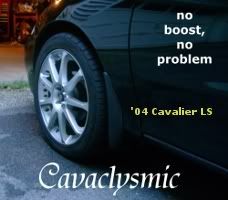You decide.
This a swift kick in the balls to the right wing extreamist that sing on what Lincoln Electric did was not possible.
Quote:
At Lincoln Electric, a Leading Maker of Welding Machines, Jobs Are Guaranteed
With unemployment hovering just under 10 percent, millions of Americans can only dream of having a guaranteed job. That's exactly the situation for Mark Wells who finds comfort in the fact that he won't be laid off.
"It has been a tough couple of years, and I know a lot of people who have lost their jobs or can't find work," Wells told ABC News at his home in Ohio. "I was on reduced hours, but I was able to go in and go to work every day, and I saw a paycheck coming in.
"And that means a lot when you know you're going to have something there at the end of the day that you can take care of your family," he said.
Wells, a tool and die maker, is one of thousands of employees at Cleveland's Lincoln Electric, which promises that even in the worst of times, no one will be laid off. The $2 billion company is the leading maker of welding machines.
Walking the factory floor north of downtown Cleveland, I asked CEO John Stropki how, in the depths of recession, he could avoid laying off any of his workers.
"Because we don't lay off workers, it's as simple as that," he said. "If you make a commitment that you're not gonna do it, then you find ways not to do it."
It's a way of doing business which dates back to the company's founding during the industrial revolution. In the late 1800s, John Lincoln started making electric motors. A few years later he brought in his brother, James, to run the business. The brothers, sons of a preacher, believed in the "golden rule:" treat people as you would like to be treated.
James Lincoln had an open-door policy, according to Frank Koller, who wrote "Spark," a book about Lincoln Electric.
"The only way to get people to demonstrate what he believed was the innate ingenuity of people, their ability to take risks, to really put themselves on the line for the corporation," he said.
That is, if they didn't have to worry about their income, then they would stay loyal and stay good employees.
"And from that grew the idea of guaranteed employment," Koller said.
Lincoln employees make about 20 percent more than their peers, including an annual bonus which averages about $17,600.
The company funds those bonuses with a third of its profits. Workers are paid for each piece they make, and there are demanding requirements. Employees are even timed with a stopwatch. But piece work allows employees to make more if they work harder.
"With Lincoln, they said somebody works hard they're gonna get paid as much as they earn," Koller said.
Bob Kanapiak's team does some of the time measurement at Lincoln. He saw his father laid off several times at other factories and cherishes his guaranteed employment.
"Put in a good days of work, then you get a good wage, and there is nothing free in the country or in the world," Kanapiak said. "You have to work for what you get. I think that's the real message of Lincoln Electric."
Kimberly Mattina thrives in that system.
"People come to work here every day knowing that if they work hard and if they contribute to the success of the company they are going to have a job," CEO Stropki said. But workers who don't measure up are let go.
"If everybody contributes everybody will be successful, and if you don't contribute you won't be here," Stropki said.
In tough times hours are cut; employees are guaranteed only 32 hours a week. In good times, rather than hire a lot of new workers, Lincoln requires its employees to work overtime.
Mark Wells says he just budgets his family on a 32 hour-a-week paycheck.
Wells is an example of another trait at Lincoln. While many companies discourage nepotism, Lincoln is a family affair.
Wells got a degree in geology but followed his father, Fred, into the factory.
"If you give to the company, they are going to take care of you. Lincoln has always had good management. Especially during hard times. Anybody can lay people off, but it takes good management to keep people working," said Fred Wells, who spent 35 years at Lincoln.
The company has been the subject of business school studies. But few modern companies have followed Lincoln's system of guaranteed employment. Some experts believe layoffs can be good for companies.
"It's a great thing for Lincoln, it's fabulous the way they pull it off, but it would be harmful in some circumstances. It would tie the hands of the organization, for example, inhibit their ability to change," says Paul Ingram a professor at Columbia Business School in New York.
But Koller, who wrote the book on Lincoln, sees another lesson.
"Surely with what we've gone through over the past couple years with hundreds of thousands, millions of people, 8.4 million people, surely we can find ways of organizing the economy where you can make a profit and not destroy people and their families and communities," he said.
Employees at Lincoln couldn't agree more.
"I move faster than other people tend to move, and at least this way I am rewarded for being a little faster than other people," she says as she makes a welding nozzle.
"If I ran a company, I would want to run it this way too. I mean it makes the employees happier knowing that they are going to have jobs," she said.
The CEO admits it may be harder to manage a company that refuses to lay off workers, but it pays off.
http://abcnews.go.com/WN/lincoln-electric-leading-maker-welding-machines-jobs-guaranteed/story?id=11188875&page=1
THE POLITICALLY INCORRECT ONE.




They get paid on piece work, as long as the factory is busy they are good. The system the use allows the employees to earn more than other factory jobs. What right wing extremist has a problem with that?
How about union workers who have no motivation to work hard but get paid more anyways, whether factory, service or government union?
This post only shows more how non union type work is a better system and work-reward systems are a more productive method. These are capitalist principles, not liberal.

True Conservative wrote:They get paid on piece work, as long as the factory is busy they are good. The system the use allows the employees to earn more than other factory jobs. What right wing extremist has a problem with that?
How about union workers who have no motivation to work hard but get paid more anyways, whether factory, service or government union?
This post only shows more how non union type work is a better system and work-reward systems are a more productive method. These are capitalist principles, not liberal.
I second that,I hope i never work for a union plant again,i never worked with so many cry babies in my life.

Normally a union's main goal is to protect you from not loosing your job. This company did it with out the use of a union. Right Wingers believes that paying a decent wage is is just a way to kill the company. This company is paying 20% more then the average doing the same work and still able to receive $17K in bonuses. Right wingers say that cost of running is to high in the states so many companies will just leave "to be competitive." This company is still here and producing for over 100 years.
This said it best:
Quote:
"Surely with what we've gone through over the past couple years with hundreds of thousands, millions of people, 8.4 million people, surely we can find ways of organizing the economy where you can make a profit and not destroy people and their families and communities."
Sadly, many people believe (especially in the Right Wing sector) that this notion is a fallacy.
Morals > Greed was his philosophy and from top to bottom, everyone is happy.
THE POLITICALLY INCORRECT ONE.




@!#$ it, not worth arguing
Edited 1 time(s). Last edited Sunday, July 18, 2010 4:32 PM

Just so goodwrench is clear this is the system the unions were started to get rid of. poor workers taken advantage of etc.
if you actually ran a business it would make sense.

Goodwrench, you should buy McDonalds for a moderator, and ask him to delete this post. It is clearly a fail.
.
“Poor Al Gore. Global warming completely debunked via the very Internet you invented. Oh, oh, the irony!” -Jon Stewart
Mr.Goodwrench-G.T. You decide.
This a swift kick in the balls to the right wing extreamist that sing on what Lincoln Electric did was not possible. Or maybe they are going back to capitalistic principles that existed when the company was founded.. Before progressivism and liberalism had run their course and were proven to be flawed models of governance...
End the thread now so you can go back to not making sense in other posts. Bill is waiting for you

As an actual employer, I can say with zero hesitation that Lincoln's model works. You guys can fight about whether it fits left or right principles, and that's all I'd expect you to do. In the end, it fits neither.
Yep, there are actually more than two ways to think...the fact is, there are dozens, perhaps hundreds, perhaps even an
infinite number of ways to interpret what's happening here. That it confounds you is all that we need to know!

The only failure is that not recognizing manufacturing in the U.S.A. can be competitive here.
The only failure not recognizing that the top and bottom can work hand in hand and at the end of the day, reap in the earning that they rightfully earned. In other words, the ones making the money for the company (workers) gets their cut of what they did.
The only failure is not recognizing the false notion that your treasured politicians and right wing media blasts out that more corporate welfare is needed in order for a company to survive.
Here is more on it so you can grasp the idea since apparently you all don't read much and better grasp the principles of the company. In other words, like it or not... it can be done.
http://video.pbs.org/video/1539393040/
THE POLITICALLY INCORRECT ONE.




It CAN be done. Even though many companies took the easy way out, and like rats deserting a sinking ship, they prioritized short-term profitability over real social conscience while they outsourced and raked in barrels of cash as they buttraped our worker base, Lincoln proves that laying prostrate to the almighty dollar is NOT the way to go.
A very inspirational find, Goodwrench.

Which of you is Scott Fargus? Just wondering so I know who the Grover Dill is...
.
“Poor Al Gore. Global warming completely debunked via the very Internet you invented. Oh, oh, the irony!” -Jon Stewart
True Conservative wrote:
How about union workers who have no motivation to work hard but get paid more anyways, whether factory, service or government union?
I have plenty of motivation. I want to keep my @!#$ job. Not every union is like the UAW, in fact most ARE NOT. I hate the UAW plant workers, and they hate me just as much. With the exception of a few, most of them try to make it a pain in the ass for me to actually perform my job. I bust my ass 40 hours a week (GM plant wont let us work any overtime) doing things that with one little mess up could leave me looking like a burnt hotdog. It is not unheard of for plant workers to leave wrenches across fuse terminals in bus plugs, and we are not allowed to open them up first unless we are fusing them. You go turn on a 400A 480V swing jack hoping that nobody wired it wrong or intentionally damaged it.
Next time you base your entire notion of unions off of the UAW or government unions, open your eyes and look at other unions first.

There are bad apples in every union, however in my personal experience its mainly the UAW that is the big issue with perception. I have been threatened buy the lazy @!#$ before (usual keep the job going BS) but those same guys found themselves laid off long before the job was supposed to be done.

Take Back the Republican Party wrote:It CAN be done. Even though many companies took the easy way out, and like rats deserting a sinking ship, they prioritized short-term profitability over real social conscience while they outsourced and raked in barrels of cash as they buttraped our worker base, Lincoln proves that laying prostrate to the almighty dollar is NOT the way to go.
A very inspirational find, Goodwrench.
haha. Yes indeed.
mitdr774 wrote:. Not every union is like the UAW, in fact most ARE NOT.
Correct.
R.W.E. of the J.B.O. wrote:Actually, while you can not necessarily use the blanket statement "all unions". More of the professional trade unions seem to be honest, but there are plenty of them that are just as corrupt. My father was a union boiler maker in Boston. He was an honest hard worker, who would get his work done as quickly as possible without sacrificing quality. He would tell me stories from time to time about getting grief from many of the guys for not helping to keep the job going longer. As a kid this didn't make sense to me, so of course, I'd ask questions. He told me how the pipe fitters were worse, and it wasn't uncommon for them to use intimidation to force "non-compliant" workers to slow down. Again, you can't say they're all like that, but there are a lot more than just the UAW. Lincoln Electric is a great example of how you can get people to work hard, and be happy with their job, without a union to negotiate for you. Performance based pay is, IMO, the best way for a company to pay. It both rewards the hard worker, and allows the company to better manage cost.
I agree to this minimal edited version.
THE POLITICALLY INCORRECT ONE.




Cavaclysmic wrote:Rosario wrote:@!#$ it, not worth arguing
Im with him.
I'm wondering why you even read this thread then, much less posted about it. Don't you have something more important to do?

Look at Nucor Corp also. Pay for production, Sharing the profits with workers and never any layoffs.
Production workers make an average of $75K (Eng/Maintenance workers make somewhat more) plus 10% of company profits are distributed to the employees at the end of the year
The more we produce each week the more the employees make.
We had our first loosing year ever and not a single employee was laid off.
Nucor Article
Another
So yes, the performance based incentive business model works and works well.
Nice! Inspirational and encouraging.

Performance based does not work in all instances. When I worked in the dealer it was all commission work. When there was no work, I made no money. Its hard to stomach being at work for 55-60 hours and bringing home a $225 check. That was one of the main reasons I left.

mitdr774 wrote:Performance based does not work in all instances. When I worked in the dealer it was all commission work. When there was no work, I made no money. Its hard to stomach being at work for 55-60 hours and bringing home a $225 check. That was one of the main reasons I left.
I would never imply that it would be suitable for every situation, but l think in a manufacturing based business it gives an incentive to increase productivity. This leads to extra effort and teamwork as everyone is contributing their skills toward getting the most out of any shift. When something isn't right, everyone asks if there is anything they can do instead of sitting down and waiting for others to get things running again.
It also is good at weeding out the lazy people. If someone isn't giving their best effort management doesn't need to get involved as their co-workers will already pressuring the person to give more effort.
What about when there is an unexpected delay in incoming parts, or demand drops? I couldnt work a manufacturing job like that without a guaranteed minimum check. All it takes is one delayed truck to shut down an assembly lime in an auto plant. Imagine if your check was reduced because of that?





































